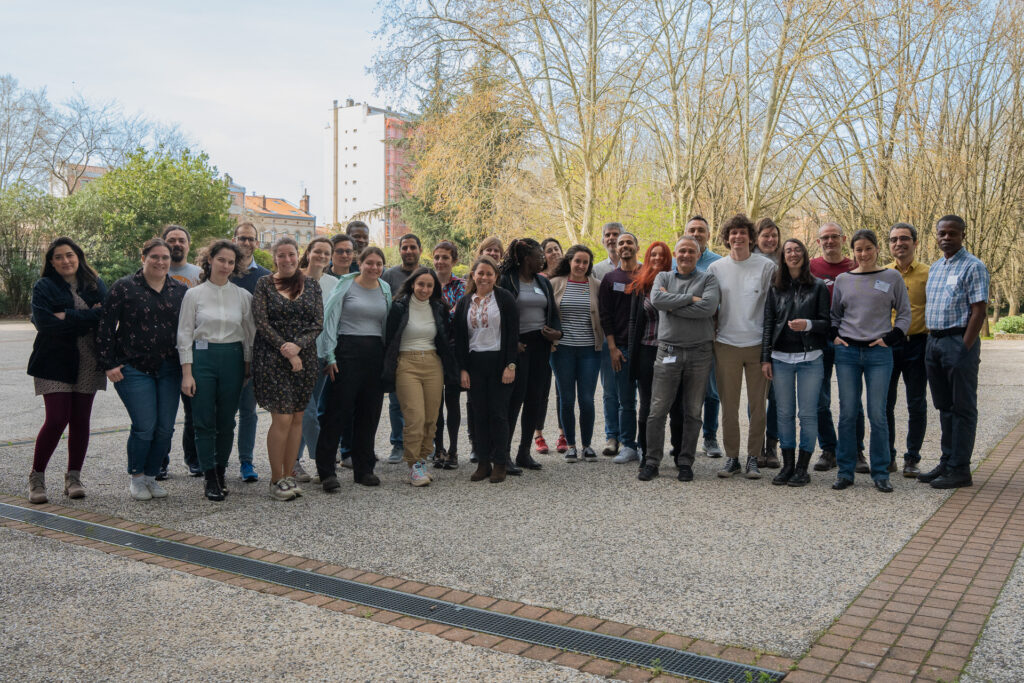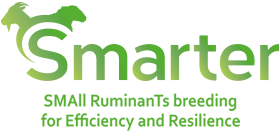
This project has received funding from the European Union’s Horizon 2020 research and innovation programme under grant agreement No 772787.
SMARTER training school great success!
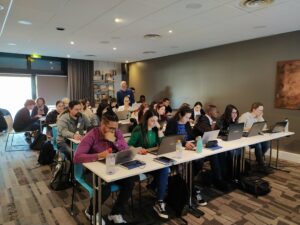 The SMARTER training school four-day event recently took place from the March 27-30th in Toulouse, France. The primary aim of the event was to introduce early-stage researchers, technicians and post-docs to the SMARTER project and give them an overview of its various aspects, such as the most recent results obtained and the novel techniques being used inside the project. A total of 19 students from Italy, France, Spain, Greece, Nigeria, Cyprus, Switzerland and Ireland attended the event. The students were from diverse academic backgrounds and had a keen interest in animal genetics, welfare, and breeding. The event provided an excellent platform for the students to interact with each other and share their knowledge and experiences.
The SMARTER training school four-day event recently took place from the March 27-30th in Toulouse, France. The primary aim of the event was to introduce early-stage researchers, technicians and post-docs to the SMARTER project and give them an overview of its various aspects, such as the most recent results obtained and the novel techniques being used inside the project. A total of 19 students from Italy, France, Spain, Greece, Nigeria, Cyprus, Switzerland and Ireland attended the event. The students were from diverse academic backgrounds and had a keen interest in animal genetics, welfare, and breeding. The event provided an excellent platform for the students to interact with each other and share their knowledge and experiences.
The training school was divided into four different modules that focused on the various work packages (WP) of the SMARTER project. The modules were led by experts in the field who are directly involved in specific WP within the project. The discussed topics included how traits for resilience and efficiency are measures, mechanistic and statistical modelling, stress detection and how an improved sociotechnical system can be used to improve selection for specific traits. Each module had practical sessions which allowed the students to undertake their own analysis and understand how data is handled and analysed within SMARTER. These modules helped the students understand the intricacies of animal breeding and genetics and how they can be used to improve animal efficiency and resilience as well as breeding practices.
were led by experts in the field who are directly involved in specific WP within the project. The discussed topics included how traits for resilience and efficiency are measures, mechanistic and statistical modelling, stress detection and how an improved sociotechnical system can be used to improve selection for specific traits. Each module had practical sessions which allowed the students to undertake their own analysis and understand how data is handled and analysed within SMARTER. These modules helped the students understand the intricacies of animal breeding and genetics and how they can be used to improve animal efficiency and resilience as well as breeding practices.
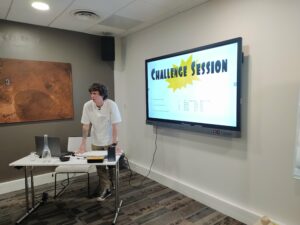 Two challenge sessions were conducted during the training school to give students a hands-on experience of the research being conducted within SMARTER, as well as allowing them to give us feedback directly on the project. The first challenge session involved data analysis to detect stress in animals, using an un-utilised SMARTER dataset. Students were provided with the dataset and were tasked with using models discussed and described within the modules to identify areas that could indicate stress in animals. The second challenge session involved undertaking a farmer-based survey to understand their perceptions and what traits they value, and would select for. This allowed us to obtain the view from a more academic audience. The students were given a questionnaire that the project usually sends directly to farmers. This challenge session gave the students an insight into the practical aspects of how farmer views are recorded and how they can be used to develop improved breeding practices that are beneficial for both farmers and animals. These challenge sessions provided the students with a chance to apply the knowledge gained during the modules and workshops and gave them a better understanding of the research being conducted in the SMARTER project.
Two challenge sessions were conducted during the training school to give students a hands-on experience of the research being conducted within SMARTER, as well as allowing them to give us feedback directly on the project. The first challenge session involved data analysis to detect stress in animals, using an un-utilised SMARTER dataset. Students were provided with the dataset and were tasked with using models discussed and described within the modules to identify areas that could indicate stress in animals. The second challenge session involved undertaking a farmer-based survey to understand their perceptions and what traits they value, and would select for. This allowed us to obtain the view from a more academic audience. The students were given a questionnaire that the project usually sends directly to farmers. This challenge session gave the students an insight into the practical aspects of how farmer views are recorded and how they can be used to develop improved breeding practices that are beneficial for both farmers and animals. These challenge sessions provided the students with a chance to apply the knowledge gained during the modules and workshops and gave them a better understanding of the research being conducted in the SMARTER project.
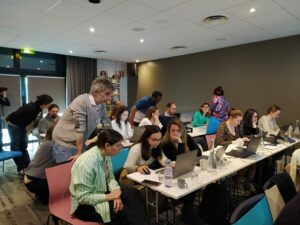
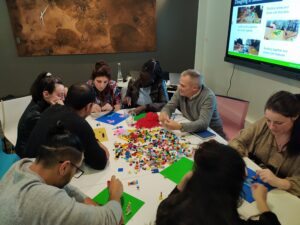
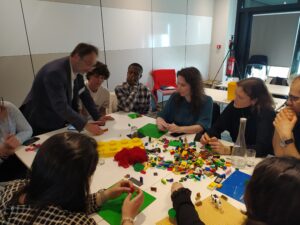
Overall, the SMARTER training School was a success, and the students found it to be an enriching and rewarding experience. The event provided them with a unique opportunity to learn about the latest research in animal genetics and modelling and it allowed them to interact with experts in the field. The students left the event with a deeper understanding of the SMARTER project and the potential it has to improve efficiency and resilience with the ultimate goal to develop the animal of the future.
